Clover Hill and its Japanese sister school revive exchange program
The exchange students arrive at Clover Hill on Sunday, March 19 to a welcome by the marching band.
This year, Clover Hill and Saitama Municipal Urawa High School in Saitama, Japan resumed their exchange program with ten Japanese students arriving at Clover Hill on March 20 and spending the week at the school.
The Japanese students each stayed with a host family during their week in America, which also featured a field trip to Williamsburg on Tuesday, March 21 and a trip to Washington D.C. at the end of the week on Monday, March 27 and Tuesday, March 28. Following the D.C. trip, the students returned to Japan. When they were not traveling, they attended classes at Clover Hill with their host students.
According to Sarah Bachouros, who participated in the exchange program in high school and now helps coordinate it, the program started in 1999 when Richmond and Saitama established a partnership. Students have swapped countries for a week ever since.
“Our program started in 1999 and Saitama and Richmond had a sister city relationship and we looked for a sister school, and we found Clover Hill,” Bachouros said. “So even though [Clover Hill] is not actually in Richmond it’s been a Richmond exchange.”
This is the first year the program is active since the beginning of the COVID-19 pandemic. Until now, the two schools had not swapped students since the spring of 2019. Due to the ongoing threat from the virus, the program’s coordinators had to make protective changes. One of the main steps they took was requiring each exchange student to have three vaccinations against the virus. They also required students to have insurance and implemented a cancellation fee.
“Everybody had to be vaccinated was the first thing,” Bachouros said. “That was a hurdle because some of the kids that applied didn’t have vaccinations, so then they couldn’t come because we need that to get back into Japan. Because [Japan is] really strict for [about entering the country].”
To select the students, the program coordinators at Saitama Municipal Urawa looked over applications. In order to earn a spot, students had to demonstrate a desire to go on the trip and proficiency in English. According to Bachouros, it was a process that began at the end of the last school year.
“Last year at the end of the year we asked [students] ‘does anybody want to go on this exchange trip’ and we had some students apply,” Bachouros said. “Then we interviewed them in English and Japanese and checked their school scores and made them write an essay about why they wanted to go and then we chose them from that.”
Miyu Sugimoto, one of the Japanese exchange students, enjoyed traveling to America because it is very different from Japan.
“Everything in America is very big and cool,” Sugimoto said.
Sugimoto was shocked by how much less strict American schools are compared to Japanese schools.
“The classes are very loose,” Sugimoto said. “[In America] when the teachers teach us, they drink something; that was a surprise. There are many strict school rules in Japan. We have to wear school uniforms and we have to tie our hair and must not wear accessories.”
Sugimoto wanted to participate in the exchange program to learn about American culture and practice English.
“I know American culture is really different from Japanese culture, so I want to know how it’s different, and I want to practice speaking English with native speakers,” Sugimoto said.
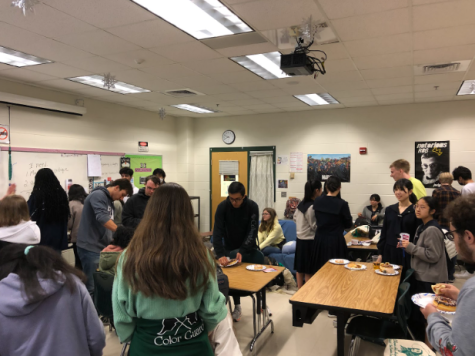
Program coordinator and chaperone Junko Kawabata believes that the program benefits the students because they can learn about a different country through a first hand experience.
“They can learn the American way of classes,” Kawabata said. “Sometimes students would like to change their character, like they tried to be positive by meeting new people. And also, some students would like to try their English.”
According to Bachouros, the chance to practice English is one of the most valuable benefits that the students get from the program. Since it is an emphasized and widely used language in Japan, it will help their futures to know it well.
“In Japan English is a mandatory subject [in school] so they don’t choose different foreign languages [and] everybody learns English as a subject,” Bachouros said. “They have to use it to pass the entrance exam for university as a required subject, the same as math or history. And so it’s a good chance for them to practice that.”
There are also other key differences between Japanese and American schools that the students are exposed to.
“The school system is really, really different,” Bachouros said. “So in Japanese schools they stay in one homeroom class of like 40 students the whole day. And they have all their classes with the same students in the same classroom. But in the American school, they’ll have their individual schedule and they’re doing different things. So I think there’s a big cultural difference in how individualized it is. And then also the subjects are quite different with what they’re studying. Like a history class would be really different because the Japanese one is focused on Japanese history and the American one is focused more on western history.”
In the future, English teacher Caity Gladstone, the exchange program coordinator at Clover Hill, hopes to once again send Clover Hill students to Japan, as this year’s version of the program was a one-way exchange. The hope is that they would arrive in Saitama on a Sunday in early June, attend classes at Saitama Municipal Urawa, visit Tokyo for two days, and fly back to America on the Wednesday of the following week.
“That will be June 2024,” Gladstone said. “I’m gonna be having an interest meeting for it, probably at the end of [April], so I can get an idea of how many are interested because we have to have ten.”
This year, Gladstone’s main job was to find host families for the Japanese students. She ended up finding a student at Clover Hill to house each of the exchange students through announcements and interest meetings. She also organized a welcome breakfast for the students on their first day at Clover Hill. It allowed them to meet Clover Hill students beyond their hosts, and the entire Japanese club attended to welcome them.
“That was the main time that we had for them, just because the students’ schedule was so packed in such a short period of time,” Gladstone said.
In addition to the welcome breakfast, they also visited the school for the first time on Sunday, March 19 when they arrived in Virginia. On that day, the marching band performed for them to welcome them. However, Gladstone avoided setting up too many special events for them at the school to give the students time to go into the community with their hosts after school to truly experience America.
“I didn’t want to monopolize much of that time because a lot of the families will go and do things after school each day [with the exchange students].”
Bachouros feels that the program has had a great impact on both Clover Hill and Saitama Municipal Urawa because of the connection it creates between two schools on opposite sides of the world.
“Even though we’re only here for a week, there’s a lot of connections there since it’s been 20, almost 25 years,” Bachouros said. “So even though there’s no Japanese class here anymore, I think it’s nice to have the international connection.”
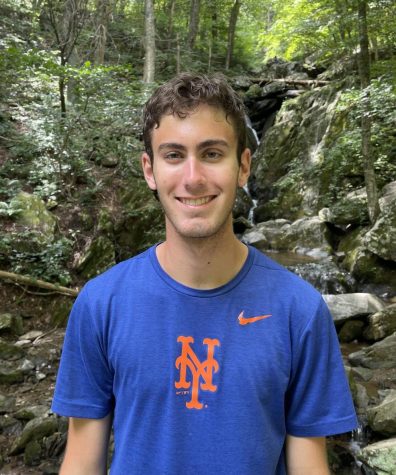
Ben is a senior in his third year of writing for the Cavalier Chronicle and his second as an editor. His love for writing led him to join the staff, and...


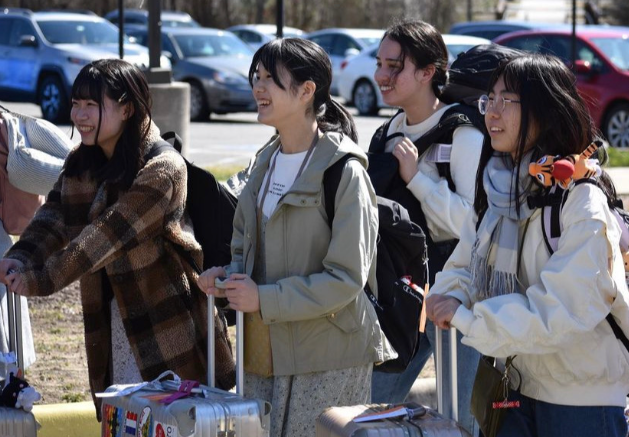
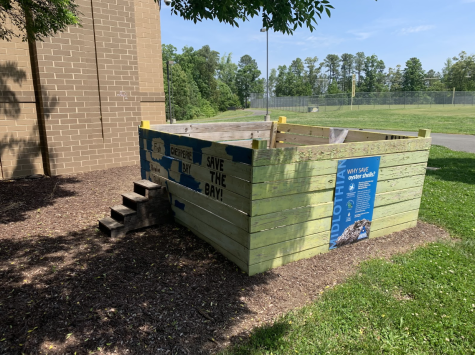


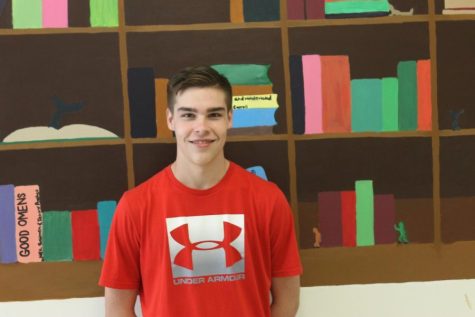
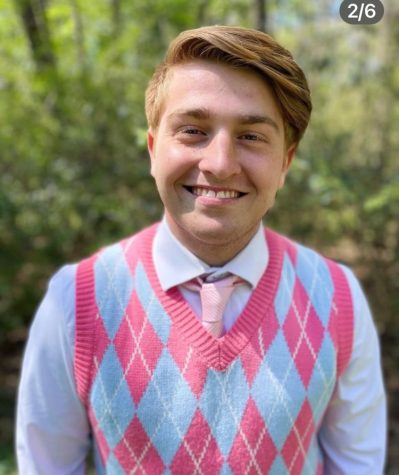
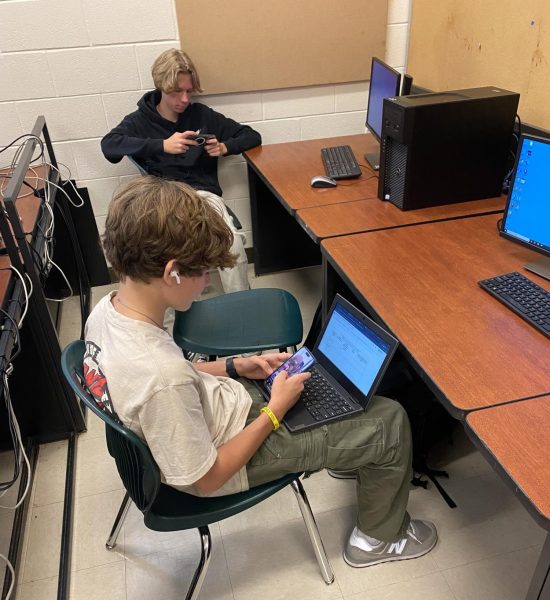
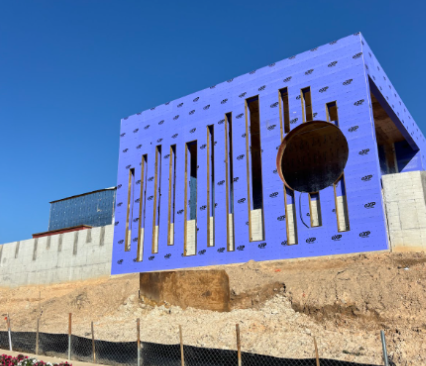


Christopher Hernandez • Apr 7, 2023 at 12:39 pm
I had a great time being a host with one of the exchange students, Aoi Furutani, as she had a great time being in America. Unfortunately, she had some troubles like a sprained ankle on the second day and a flu on the third, not being able to go to Williamsburg with her friends. Nevertheless, me, my family, and obviously, my exchange student went to New York City as it was always her dream to be there. I hope I’m able to visit her country next year as I’m very grateful to have her in my country.
– Christopher Hernandez (9)